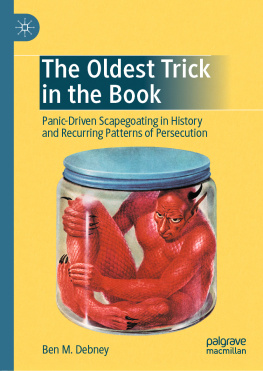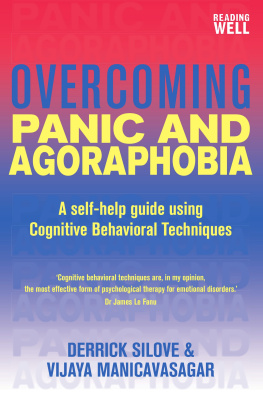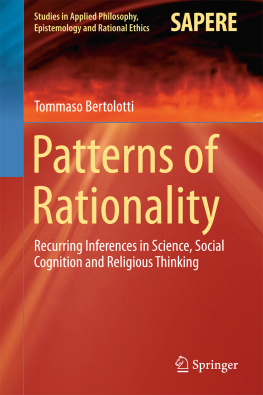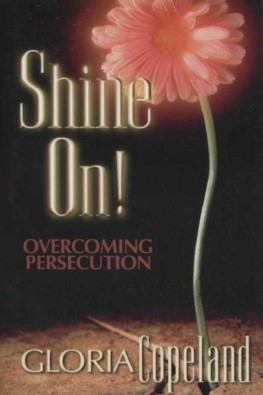Ben M. Debney - The Oldest Trick in the Book: Panic-Driven Scapegoating in History and Recurring Patterns of Persecution
Here you can read online Ben M. Debney - The Oldest Trick in the Book: Panic-Driven Scapegoating in History and Recurring Patterns of Persecution full text of the book (entire story) in english for free. Download pdf and epub, get meaning, cover and reviews about this ebook. year: 2020, publisher: Springer Singapore, genre: Politics. Description of the work, (preface) as well as reviews are available. Best literature library LitArk.com created for fans of good reading and offers a wide selection of genres:
Romance novel
Science fiction
Adventure
Detective
Science
History
Home and family
Prose
Art
Politics
Computer
Non-fiction
Religion
Business
Children
Humor
Choose a favorite category and find really read worthwhile books. Enjoy immersion in the world of imagination, feel the emotions of the characters or learn something new for yourself, make an fascinating discovery.
- Book:The Oldest Trick in the Book: Panic-Driven Scapegoating in History and Recurring Patterns of Persecution
- Author:
- Publisher:Springer Singapore
- Genre:
- Year:2020
- Rating:4 / 5
- Favourites:Add to favourites
- Your mark:
- 80
- 1
- 2
- 3
- 4
- 5
The Oldest Trick in the Book: Panic-Driven Scapegoating in History and Recurring Patterns of Persecution: summary, description and annotation
We offer to read an annotation, description, summary or preface (depends on what the author of the book "The Oldest Trick in the Book: Panic-Driven Scapegoating in History and Recurring Patterns of Persecution" wrote himself). If you haven't found the necessary information about the book — write in the comments, we will try to find it.
Ben M. Debney: author's other books
Who wrote The Oldest Trick in the Book: Panic-Driven Scapegoating in History and Recurring Patterns of Persecution? Find out the surname, the name of the author of the book and a list of all author's works by series.
The Oldest Trick in the Book: Panic-Driven Scapegoating in History and Recurring Patterns of Persecution — read online for free the complete book (whole text) full work
Below is the text of the book, divided by pages. System saving the place of the last page read, allows you to conveniently read the book "The Oldest Trick in the Book: Panic-Driven Scapegoating in History and Recurring Patterns of Persecution" online for free, without having to search again every time where you left off. Put a bookmark, and you can go to the page where you finished reading at any time.
Font size:
Interval:
Bookmark:
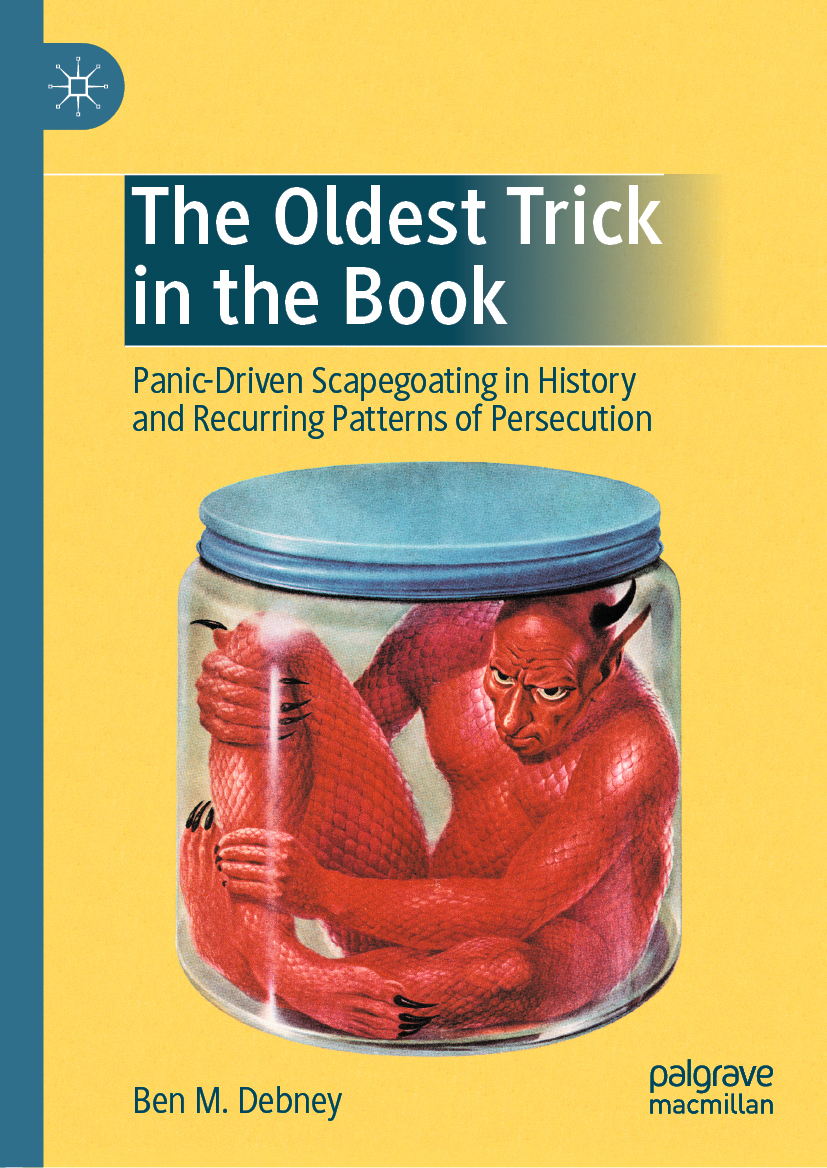

Cover image: CSA Images/Getty Images
This Palgrave Macmillan imprint is published by the registered company Springer Nature Singapore Pte Ltd.
The registered company address is: 152 Beach Road, #21-01/04 Gateway East, Singapore 189721, Singapore
The Oldest Trick in the Book revives the type of radical class orientation that has given so much of classical sociology its analytic power and enduring relevance. Bait and switch scapegoating by elites is indeed a very old trick; but why do we fall for it anew, with each slightly refurbished iteration? Ben Debneys well-researched, historically rich, and analytically-muscular book answers that question in useful and original ways.
Christian Parenti, Associate Professor of Economics at John Jay College, City University of New York (CUNY)
In his daringly sweeping treatise on scapegoating throughout history, Ben Debney reveals the social function of demonisation to be an audacious smoke and mirrors trick: obscuring the real evil of ruling elites while distortedly reflecting it. The Oldest Trick in the Book is a lively and thoughtful offering.
Scott Poynting, Adjunct Professor, Charles Sturt University and Queensland University of Technology, Australia
The Oldest Trick in the Book takes us on a remarkable journey. Ben Debney perceptively explores the long use and abuse of power and ideology, from the Roman Empire to Red Scares, Witch Hunts to Islamophobia. The power of the One Percent, he shows us, depends on convincing the rest of us to accept the demonization of the Enemy: unruly women, treacherous communists, Islamic terrorists. It is to Debneys great credit that he reveals scapegoatings long history as pillars of rule, and strategies of cultural and material violence directed at the oppressed and exploited. The Oldest Trick in the Book is a necessary contribution to unmasking modernitys binary code and pointing the way towards a more just and sustainable future.
Jason W. Moore, Professor of Sociology, Binghamton University. Author, Capitalism in the Web of Life
This work is dedicated to the voices silenced during the episodes treated herein. I thought about them a lot.
A banker, a worker and a refugee are seated at a table with 20 cookies on a plate in the middle. The banker takes 19 and says to the worker, watch out for that refugee, he wants your cookie.
Old union joke
Beware of the words internal security, for they are the eternal cry of the oppressor.
Voltaire
If it is a truism of life that no one is an island and being is relational, this also holds absolutely true for the process of undertaking a research project like this one. If this research project exists, it does so in no small part thanks to the help and support provided by a variety of significant actors, for which I am eternally grateful. First and foremost, Kate MacDonald aided with critical issues in the methodological development of this text and provided what amounted in the end to informal supervision of development of the manuscript. If this study demonstrates any sort of meaningful methodological coherence and adequately signposts stages of the overall argument, then that is thanks to her influence and significant investment of time and energy in this project. All shortcomings on this count are mine alone.
Shelley Marshall and Annie Delaney were both vital sources of moral and collegial support; if I felt like I belonged in the community of research scholars, it was due in no small part to their efforts. I am extremely fortunate to have both in my corner. Nick Fischer, Tom Middlebrook and Scott Poynting also read drafts of work and offered critical feedback inclusive of invaluable insights into the topic areas under study as well as technical advice on academic writing. Brian Levack and Laura Stokes were both very helpful in getting my head around some of the finer points associated with the European Witch Hunts. Curt Cardwell was very helpful in getting my head around some of the finer points of NSC68 and its implications for the Cold War. Erich Goode, Chas Critcher, Jon Oplinger and Gershon Shafir were all very helpful in coming to terms with moral panics in general. Brendan McGloin passed on some exceptionally useful tidbits which appear in the text at various points.
Joshua Frank, Jeffrey St. Clair and Chris Graham were helpful in supporting my practise writing. Jason Moore and Simon Springer were both notable sources of positive encouragement and support, especially during the more difficult latter phases of this project; Jason in particular draws from a well of positivity that seems to know no end and is a singular pleasure to experience. Katherine Sylwester helped me to acquire rare primary sources on the Red Scares which were unavailable for shipping to Australia. Martin Howard helped me to acquire a Shepard Fairey/Alternative Tentacles/Powell Peralta collaboration skateboard deck from the UK on the same count, helping greatly to stay sane during the redrafting phase. Noam Chomsky provided crucial aid with the metaphor summarising the study; it would have been infinitely more difficult to tie the work together without his assistance. Thank you for that and for your intellectual contributions far more generally, Noam. Anyone who knows me knows the great esteem in which I have long held you and your work.
For more general academic help, collegiality and solidarity I would also like to thank Afreen Huq, Alex Waters, Amelia Johns, Andrea Gallant, Ashleigh Haw, Barry Carr, Beryl Langer, Blair Taylor, Bonnie Teece, Christopher Cox, Christian Parenti, Colm McNaughton, Dan Boscov-Ellen, Gareth Bryant, George Morgan, Hayley Smith, Ida Harboe, Inger Mewburn, Irma Allen, Andreas Malm and everyone associated with the Political Ecology of the Far-Right Conference at Lund University, Jack Roberts, Justin McBrien, Kate Roberts, Katy Maloney, Linda Jones, Melody McCormack, Michael Hall, Michele Lobo, Nick Butler, Paul Pul, Paula de Angelis, Philip Quadrio, Robyn Hunter, Ron Baird, Ronan Lee, Rosaria Burchelli, Samson Martin, Sonia Muoz Llort, S-oren Kemp and Yassir Morsi. I must extend particular thanks and gratitude to Drew Cottle and Brett Bowden in the History department at Western Sydney University for the opportunity to build on the research contained herein in agreeing to supervise my doctoral candidature; I consider myself exceptionally fortunate on this count.
Font size:
Interval:
Bookmark:
Similar books «The Oldest Trick in the Book: Panic-Driven Scapegoating in History and Recurring Patterns of Persecution»
Look at similar books to The Oldest Trick in the Book: Panic-Driven Scapegoating in History and Recurring Patterns of Persecution. We have selected literature similar in name and meaning in the hope of providing readers with more options to find new, interesting, not yet read works.
Discussion, reviews of the book The Oldest Trick in the Book: Panic-Driven Scapegoating in History and Recurring Patterns of Persecution and just readers' own opinions. Leave your comments, write what you think about the work, its meaning or the main characters. Specify what exactly you liked and what you didn't like, and why you think so.

